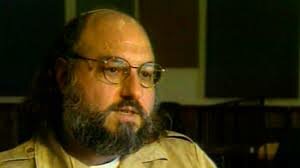As a precondition for reopening peace talks with the Palestinians, Israeli Prime Minister Benjamin Netanyahu unsuccessfully called on the U.S. to release Jonathan Pollard, the American convicted of spying on behalf of Israel in the 80’s. The fight to free Pollard from a life long prison sentence has gone on for decades, with many well known politicians and hawkish Israeli supporters coming to his defense. But the underlying message that Pollard’s supporters bring is ideological: Pollard is another example of Jewish victimization. The goyim have once again pronounced a disproportionate punishment against a Jew. But this time, his supporters believe, Jewish power will stop them.
The victimization narrative that’s engulfed modern day Zionism has grave ramifications for the younger Jewish community. As several writers have espoused in the Beacon and in other publications, many in the younger Jewish community don’t want to see themselves as victims. To many of us, the Holocaust with all its horror is falling into the historical archives of Jewish tragedy. It is situating itself in the Jewish people’s cultural history, and no longer in its personal history. The story of Jonathan Pollard hearkens back to a time when Jews were the scapegoats of the world. He is told to be a Zionist ideologue, not a cocaine using spy who sold classified material to Israel. We are supposed to believe that the American government has punished him too severely. But why: simply because he is a Jew?
While Pollard’s punishment may seem unusual given his crime, it was certainly legal. The punishment he is receiving–presumably a life sentence–is well within the scope of the charges. Nobody has invented a special punishment for Jews or Israeli spies; they are given the same trial as anyone. The fact that serious legal scholars have debated the fairness of his punishment should not be considered proof of closet anti-Semitism. Many of Pollard’s greatest opponents are Jews. And no, they are not all “self-hating.”
In order to appeal to the younger Jewish community, Israel’s leaders must begin appealing to the younger Jewish community’s modern day liberalism (its beliefs in free speech, democracy, and civil rights), instead of an anachronistic narrative of fear. There is no strategic reason for why Pollard, an American prisoner, should be mentioned in peace negotiations between the Israelis and Palestinians. The intentions are transparent, and younger American Jews don’t buy it. For many if not most of us, our Zionism isn’t defined by Jewish victimization. We genuinely trust the American legal system, and we can’t possibly believe that it is out to get the Jews.
The story of Jonathan Pollard nevertheless has serious implications for the way we think of Jewish identity. As Phillip Roth discusses in his novel Pollard brings up the question of how we explain dual loyalty. Are we first Jews, or Americans? But regardless of how we answer that question, we must agree on one thing: the world has changed since Nazi Germany. Jonathan Pollard is not Alfred Dreyfus, and Jewish Americans are not the victims of gentile tyranny. Israel’s leaders must understand this if they intend to appeal to America’s younger Jewish community.

Comments